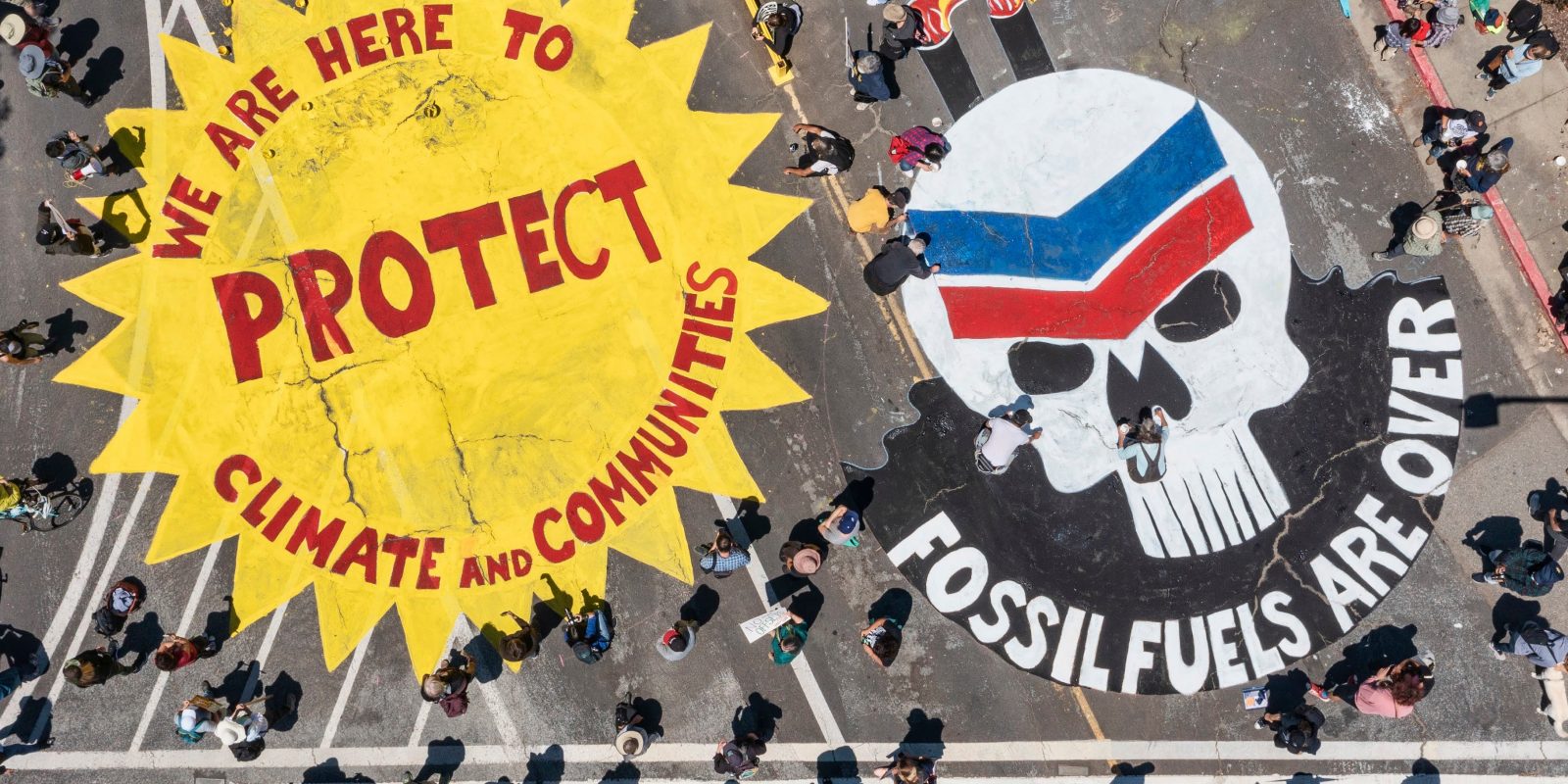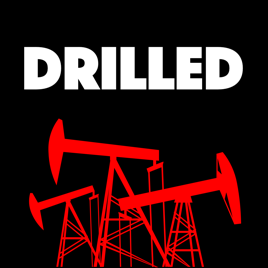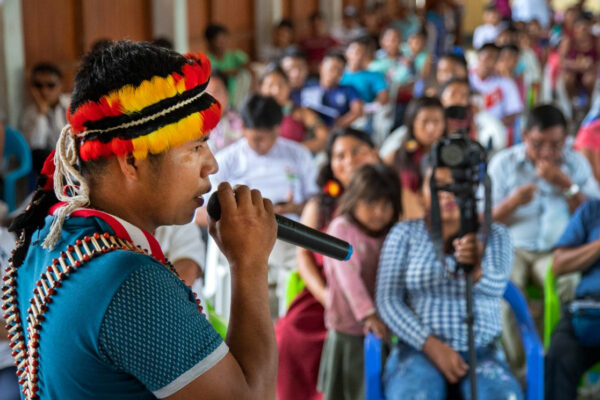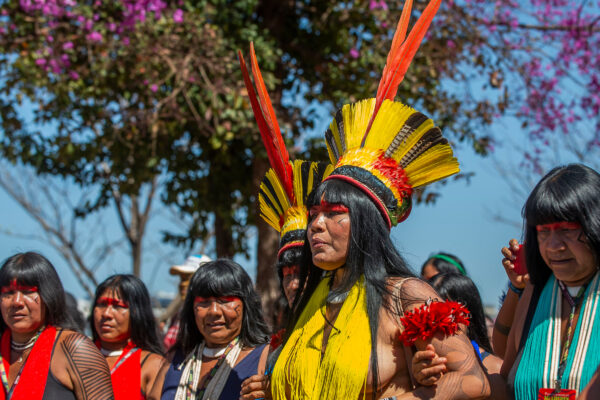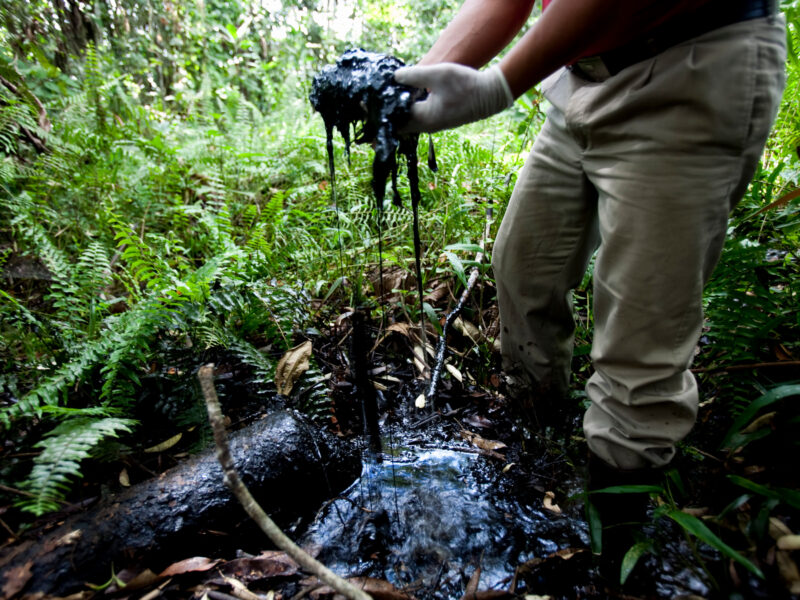Tomorrow, May 26, will be Chevron’s 11th shareholder meeting since the company lost a historic $9.5 billion judgement for deliberately polluting the Ecuadorian Amazon. Since then, many more Ecuadorians have gotten sick and died awaiting justice, as Chevron pulled its assets from Ecuador and waged a retaliatory legal assault. It spent well over a billion dollars on lawyers and PR firms to attack its victims in Ecuador and the lawyers who helped defeat Chevron.
The 16 billion gallons of toxic pollution Chevron admitted to deliberately dumping remains in the Amazon rainforest, continuing to leech poison into rivers and streams every single day. During its annual general meeting (AGM), there is no doubt that Chevron CEO Mike Wirth will once again try to brush aside shareholders calling for justice in Ecuador, by hiding behind a deceptive 2014 RICO decision that Chevron orchestrated.
For many years before and now a decade since their landmark 2011 legal victory of the affected communities in Ecuador, we have stood alongside Ecuadorians demanding justice, and now the tide is turning due to the outrageousness of Chevron’s retaliation and our united persistence. Dozens of human rights and environmental organizations, 68 Nobel Laureates, legal scholars, law students, legendary artists, activist leaders, and now even members of the U.S. Congress have joined together to expose Chevron’s crimes. The ongoing resistance in Ecuador is rapidly being recognized as a front line struggle for climate justice and a bellwether case against the fossil fuel industry.
Last Friday, the 8th Annual Global Anti-Chevron Day took place with actions in the streets, at Chevron refineries, and online. Affected communities from around the world – harmed by Chevron’s negligence or deliberate acts of destruction – organized to demand action in defense of their families, communities, and our climate. In the U.S., Chevron is widely seen as a threat not only to the environment but to the political process and justice system. Denouncing the attacks and criminalization of those who fight back – most specifically human rights lawyer Steven Donziger – has become a rallying call across the movement.
Chevron’s goal has always been to make Donziger into a criminal as a warning to other environmental lawyers who might champion similar causes. And while they might win the battle to have Donziger thrown in jail, the brazenness of their attacks and the increasingly negative perception of big oil, may well cause them to lose the war. In their fever to destroy Donziger, Chevron and its legal team at Gibson, Dunn & Crutcher have shown that they were hired to invalidate the suffering of the Ecuadorian people, silence their advocates, and in service to fossil fuels, reinforce corporate impunity.
“The fight against corporate power and greed is one of the key environmental and economic justice challenges facing our planet. Indigenous Amazon communities won one of the most important class action lawsuits ever, holding Chevron accountable for environmental devastation with nearly $10 billion in damages, and ever since Chevron has sought to use its money and power to illegitimately nullify this result,” said Congresswoman Rashida Tlaib
The reason Congresswoman Tlaib joined Representatives Cori Bush, Jim McGovern, Jamaal Bowman, Jamie Raskin, and Alexandria Ocasio-Cortez to ask the DOJ to intervene in Donziger’s case is that Chevron’s manipulation of the U.S. judiciary has become recognized for what it is – nothing more than a attempt to “illegitimately nullify” the Ecuadorian judgment.
How to criminalize a human rights lawyer, Chevron-style
This month I spent the better part of a week in a federal courtroom in New York City watching what has been rightly called the first corporate criminal prosecution in U.S. history (listen to this Drilled podcast to learn more about this sham trial). Fossil fuel corporate lawyers – appointed to the case after the U.S. attorney declined to prosecute – questioned other Chevron lawyers for a week about Donziger’s alleged “scheme” to violate Kaplan’s RICO decision. The judge – Loretta Preska, a Federalist Society member hand-picked by Kaplan (in violation of SDNY rules) – listened to Rita Glavin of the corporate law firm Seward & Kissel (which had Chevron as a client as recently as 2018) questioning Gibson Dunn lawyers who literally built their careers on undermining justice in Ecuador and vilifying Donziger. Essentially the judge, prosecution, and witnesses were all Chevron allies and made no attempt to hide it.
As Steven Donziger’s defense lawyer Ron Kuby said to a large rally of supporters outside the courthouse in New York on May 7th: “We are not here to witness justice. We are here to bear witness to injustice.” After five long days witnessing this corporate prosecution I can attest to that truth. It was a shocking spectacle of injustice – not surprising, but shocking nonetheless. Unchecked, Chevron’s corporate takeover of the U.S. judiciary as a means of escaping liability for its crimes in Ecuador will do immeasurable harm to corporate accountability efforts.
The criminal contempt of court trial of Steven Donziger is an example of how corporate power and legal bullying can use outrageous and well-funded lies to demand money, and then use that pretext as an excuse to further violate the rights of a human rights lawyer. When Steven Donziger resisted Chevron’s unlawful and corrupt means to seize his bank accounts and access confidential information, he was labeled a criminal by a U.S. court.
Chevron‘s goal has never been to challenge the truth of what happened in Ecuador. It was never even to debate its level of responsibility for what it did there. It has only been to disrupt and undermine the legal process, dehumanize its victims in Ecuador, deny their suffering, label THEM as criminals and scare their advocates into giving up the fight for justice.
The reason Chevron itself pushed to have Donziger held in contempt of court was because it wanted information on who was helping him enforce the judgment outside of Ecuador. This was something which he had every right to do even according to Judge Kaplan‘s RICO decision. That is a threat to Chevron because the judgement from Ecuador is valid and any fair court in the world that reviews the evidence will uphold the decision of 17 Ecuadorian judges and its Supreme Court and demand that Chevron pay to clean up the Amazon.
An even deeper threat to justice and those challenging corporate power is the unholy alliance of high paid corporate law firms, oil companies, and now U.S. federal judges working to advance corporate interest with complete indifference to even the appearance of fairness.
The essential facts of this case, often overlooked must be repeated to understand this saga:
- Texaco deliberately dumped the oil waste in the Amazon and admitted to doing it as a cost-saving measure.
- Working within a legal system that had already failed to hold Chevron criminally liable, the Ecuadorians launched a class action suit in New York, only to be rejected after eight years of legal battles and sent back to Ecuador to start the process all over again.
- After losing in Ecuador in 2011, Chevron waged a legal scorched earth campaign back in the U.S. to nullify the Ecuadorian judgment and deny the people access to justice.
- Judges Kaplan and Preska have used the court system to uphold Chevron blatant lies, permitted bribed witnesses, persecuted Donziger with almost two years of home detention all part of a process meant to scare other lawyers and human rights advocates from taking cases that truly challenge corporate power in America.
The truth is that Chevron is a criminal enterprise using its wealth and power to buy the justice system and destroy its enemies using the gavels of federal judges complicit in their unethical and immoral tactics.
All you need to know to understand the truth of the matter is that Chevron admitted to dumping 16 billion gallons of toxic waste into the Amazon as a cost-saving measure. It fought every attempt at a legal process by trying to derail the case using technicalities and legal bullying. It lost a $9.5 billion judgement upheld by 17 judges and the highest courts in Ecuador and validated by the Supreme Court of Canada, yet thus far it has escaped paying by denying the rights of the Ecuadorians and legitimacy of their courts.
It has even targeted the victims of its admitted pollution in Ecuador and called them criminals. The phrase “David versus Goliath” is appropriately used to describe this case. Having witnessed the decades of attacks and abuses leveled at Steven Donziger by Chevron’s army of lawyers, it’s nothing short of miraculous that he continues to persist and the movement behind him and for justice in Ecuador continues to grow.
As Congresswoman Cori Bush said, “Too often Indigenous and frontline communities are denied the justice they deserve after racist fossil fuel pollution and corporate violence put their lives and livelihoods at risk.”
David has a lot more allies now and Goliath may have gone a step too far.


